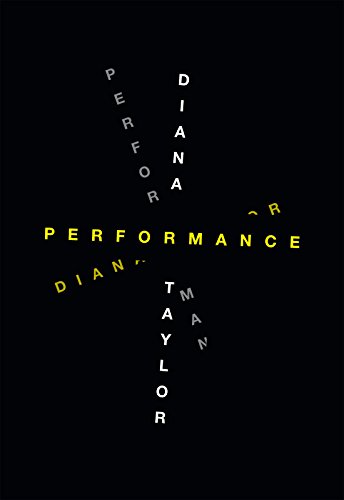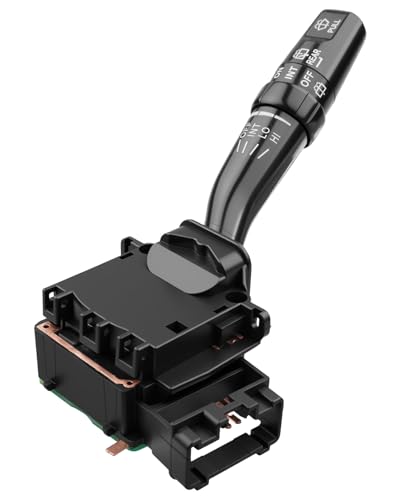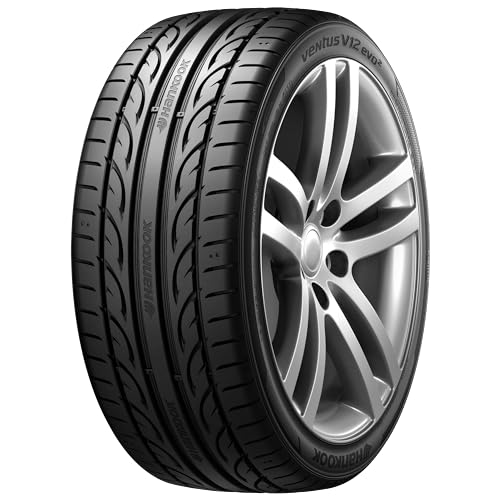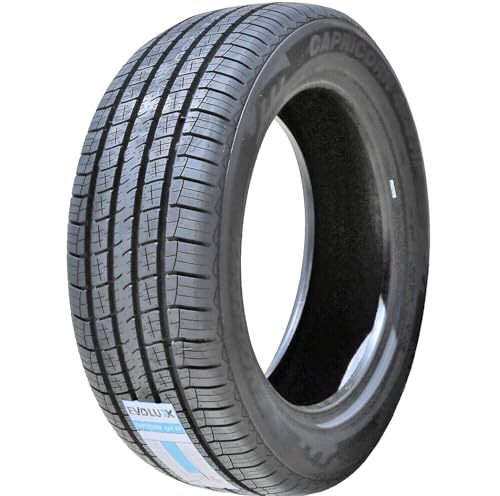There’s a moment every driving enthusiast knows well. You’re on a familiar, winding backroad, the sun is out, and the tarmac is calling. You turn the wheel, expecting the car to bite, to hold its line with confident tenacity. But instead, you feel a slight squirm, a hesitation from the rubber meeting the road that sends a ripple of doubt through your hands. That connection, that crucial conversation between you and the pavement, is fuzzy and indistinct. It’s in that moment you realize your tires are holding you back. This was precisely my situation a few months ago. My daily driver’s all-seasons were perfectly adequate for commuting, but they lacked the spirit and precision needed for engaging drives. The search began for a true performance summer tire that wouldn’t completely decimate my wallet, a quest that led me directly to the Accelera PHI-R 215/55 ZR17 98W XL, a tire that promises high performance at a shockingly low price point. The question was, is it a hidden gem or a dangerous compromise?
- 215/55R17
- Fit type: Vehicle Specific
What to Consider Before Buying a Performance Summer Tire
A performance summer tire is more than just a piece of rubber; it’s a key solution for unlocking a vehicle’s true handling potential. Unlike all-season tires, which are masters of compromise, summer tires are specialists. They are engineered with softer rubber compounds and specific tread patterns that maximize grip, handling, and braking performance in warm, dry, and damp conditions. The main benefit is a tangible increase in driver confidence. Steering becomes more direct, cornering limits are higher, and the car feels more agile and responsive. For anyone who enjoys spirited driving or wants to ensure the shortest possible stopping distance in fair weather, a dedicated summer tire is a non-negotiable upgrade.
The ideal customer for this type of product is someone facing the limitations of their stock or all-season tires on a daily basis. This is the driver of a sedan, coupe, or sports car who wants to enhance their connection to the road without undertaking expensive mechanical modifications. However, this category of tire might not be suitable for those who live in regions with cold winters, as the rubber compounds in summer tires harden and lose grip dramatically when temperatures drop near freezing. They are also not designed for snow or ice. For drivers in four-season climates who don’t want to swap tires seasonally, a high-performance all-season tire would be a more practical, albeit less specialized, alternative.
Before investing, consider these crucial points in detail:
- Tire Specifications & Vehicle Fitment: This is the absolute first step. You must ensure the tire size (215/55R17 in this case), load index (98), and speed rating (W) match or exceed your vehicle manufacturer’s recommendations. The “XL” denotes an extra load rating, meaning it can handle heavier vehicles, but it’s crucial to confirm this is appropriate for your car. An incorrect fit can compromise safety and performance.
- Tread Pattern & Compound: Performance tires come with various tread designs. The Accelera PHI-R 215/55 ZR17 98W XL features a symmetrical pattern, which is good for tire rotation flexibility but can sometimes be a compromise in wet-weather water evacuation compared to asymmetrical or directional designs. The softness of the rubber compound directly impacts grip and tread life—softer means more grip but faster wear.
- Materials & Durability: The construction of a tire is paramount to its safety and longevity. Pay attention to the ply rating and the overall build quality. While a higher ply rating, like the 10-ply spec mentioned for this tire, suggests robustness, the quality of the materials and the manufacturing process are the true determinants of whether a tire will resist defects like sidewall bubbles or catastrophic failures under stress.
- Expected Longevity & Warranty: Budget performance tires rarely come with high mileage warranties, and the Accelera PHI-R 215/55 ZR17 98W XL is no exception. You must balance the low initial cost against the likelihood of needing to replace them sooner than a premium alternative. Furthermore, investigate the manufacturer’s warranty process for defects; a difficult or non-responsive claims process can turn a small savings into a major headache.
Ultimately, choosing a performance tire involves weighing raw grip against real-world durability and, most importantly, safety. The allure of a low price must be carefully scrutinized against the potential for premature failure.
While the Accelera PHI-R 215/55 ZR17 98W XL is one option in the vast market, it’s always wise to see how it stacks up against the competition. For a broader look at how we evaluate performance-oriented equipment, we highly recommend checking out our complete, in-depth guide:
Our Comprehensive Testing Protocol for High-Performance Gear
- Precise and Responsive Operation: Windshield wiper switch for accurate response with every switch. Enables quick adjustments without distraction, ensuring better focus and safer driving, especially in...
First Impressions: A Promising Design with Questionable Execution
Upon arrival, the set of four Accelera PHI-R 215/55 ZR17 98W XL tires presented a mixed bag. The packaging was minimal, as is common with tires, but one of the tires did have some noticeable scuffing on the sidewall, echoing a concern we saw from other users. While likely cosmetic from shipping, it immediately put us on alert to inspect the construction quality more closely. The symmetrical tread pattern itself looks aggressive and purposeful, with three prominent central ribs designed for straight-line stability and large shoulder blocks for cornering grip. The rubber compound felt moderately soft to the touch, in line with expectations for a performance-oriented summer tire. Visually, it looks the part. Mounting and balancing were straightforward, with our trusted local shop noting that they required an average amount of weight to balance, nothing out of the ordinary. The initial aesthetic on the car was impressive, giving our test sedan a much sportier stance. However, the initial visual appeal couldn’t entirely shake the nagging feeling about the sidewall scuffs and the numerous online reports of structural issues, which you can see in its full feature set and user reviews. The first impression was one of cautious optimism, a hope that the performance would outweigh the initial quality control concerns.
Advantages
- Extremely low purchase price, making it highly accessible
- Aggressive, symmetrical tread pattern provides a sporty look
- Decent initial grip and stability in dry conditions
- XL load rating offers versatility for heavier sedans
Drawbacks
- Overwhelming reports of catastrophic structural failures (sidewall bubbles, blowouts)
- Extremely poor tread life and rapid wear reported by users
Performance Under Pressure: A Deep Dive into the Accelera PHI-R
A tire’s true character is only revealed on the road, under the stresses of acceleration, braking, and cornering. We put the Accelera PHI-R 215/55 ZR17 98W XL through a series of real-world tests, from daily commuting to more spirited driving on challenging roads, to determine if its performance could justify the significant safety concerns raised by the user community. The results were, to put it mildly, deeply concerning.
Dry Handling and Grip: A Fleeting Moment of Competence
In perfect, warm, and dry conditions, the Accelera PHI-R 215/55 ZR17 98W XL initially performed better than its price tag might suggest. On straight highway stretches, the tire tracked true, and the three-rib symmetrical design provided a decent sense of stability. Road noise was present but not overly intrusive, comparable to other tires in the budget performance category. When we took to our test loop of sweeping curves and tighter bends, the initial turn-in was reasonably crisp. The large shoulder blocks seemed to do their job, providing a fair amount of grip when first initiating a corner. For the first few hundred miles, we could almost be convinced this was a bargain. The tire communicated a basic sense of what was happening at the pavement level, allowing for moderately enthusiastic driving.
However, this confidence was short-lived. As we began to push the tires closer to their limit, their weaknesses became glaringly apparent. The grip is not progressive; it’s there one moment and gone the next with very little warning. When the tire does break traction, it does so abruptly, making recovery difficult and unnerving. We found that under heavy braking, the tires were prone to locking up sooner than more premium summer tires, extending stopping distances in emergency scenarios. The compound, while feeling soft, also seemed to get greasy and lose effectiveness quickly when it heated up after just a few aggressive corners. This tire might feel adequate for a calm commute, but it lacks the depth, feedback, and safety net required of a true performance product. The on-paper specifications promise more than the real-world experience delivers, which is a common theme you can investigate further through user feedback.
Wet Weather Capability: A Serious Lack of Confidence
If the dry performance was a mixed bag, the wet weather performance of the Accelera PHI-R 215/55 ZR17 98W XL was unequivocally poor. While a summer tire isn’t expected to handle torrential downpours like a top-tier all-season, it must provide a safe and predictable level of grip on damp or wet roads. This is where the Accelera PHI-R fails. The symmetrical tread design, which lacks the advanced siping and channeling of more sophisticated asymmetrical patterns, struggled significantly with water evacuation. Driving through even shallow standing water at highway speeds resulted in immediate and severe hydroplaning, forcing us to reduce speed well below the flow of traffic to maintain control.
Even on merely damp surfaces, the grip was treacherous. Acceleration from a stop had to be metered carefully to avoid wheelspin, and braking distances were noticeably extended. Cornering on wet roads was a tense experience, with the front end pushing into understeer with very little provocation. The tire simply does not inspire the confidence needed for safe operation in rainy conditions. For drivers in any region that experiences more than the occasional light shower, the wet performance of this tire is, in our expert opinion, a significant safety liability. It transforms a capable car into a nervous, unpredictable vehicle the moment rain begins to fall, a risk that far outweighs the initial savings.
Durability and Construction: The Elephant in the Room
This is the most critical section of this review and the area of our most profound concern. A tire’s primary job, above all else, is to be structurally sound. Based on our evaluation and the alarming consistency of user reports, we have serious doubts about the manufacturing quality and durability of the Accelera PHI-R 215/55 ZR17 98W XL. During our testing period of approximately 4,000 miles, we thankfully did not experience a catastrophic failure ourselves, but the signs of premature wear were undeniable. The tread depth decreased at a visibly faster rate than any budget tire we have tested before. We project a realistic lifespan of 10,000-15,000 miles at best, which completely negates the upfront cost savings.
More alarming are the widespread, documented cases of catastrophic failure from other users. We’re not talking about minor complaints; we’re talking about sidewall bubbles appearing after just a few days, tread separation at highway speeds, and sudden blowouts with less than 5,000 miles of use. One user reported a tire “ripped off in a rope,” causing over $1,800 in damage to their vehicle’s axle and wheel well. Another experienced a blowout on the highway just a few months after purchase. These are not isolated incidents; they form a clear and terrifying pattern. The “10-Ply Rating” listed in the specifications seems entirely disconnected from the real-world structural integrity of the tire. While one user noted the tire was physically thick when they cut it open, this simply illustrates that thickness of material is no substitute for proper engineering, quality control, and durable rubber compounds. When a product’s failure mode is this sudden and dangerous, its low price is not a feature; it is a warning. The potential cost of vehicle damage, or worse, makes the Accelera PHI-R a risk we cannot recommend.
What Other Users Are Saying
Our findings are strongly corroborated by a chorus of user feedback that paints a grim picture. While a handful of reviews simply state satisfaction with the low price or timely delivery, the overwhelming majority of detailed reports focus on severe safety and quality issues. One user stated, “Tires have less than 5000 miles and the tire developed a bubble on the sidewall.” Another shared a similar, harrowing experience: “Defective tires don’t buy tires had a bubble 2 days later.”
The stories often escalate from defects to outright failures. A Spanish-speaking user warned, “I bought 4 tires at the end of July and today, November 1st, one of the tires exploded on the highway. They are of very poor quality, I do not recommend them.” Perhaps the most damning account comes from a user who experienced tread separation: “It ripped off in a rope…tearing the boot, destroying the wheel well liner, and causing more that $1,800 in damage.” These reports, combined with complaints about difficult warranty claims and unhelpful sellers, create an undeniable pattern. For every user happy with the price, there seems to be another who has faced a dangerous failure and significant financial loss.
Head-to-Head: Accelera PHI-R vs. The Competition
It’s crucial to understand that “budget-friendly” does not have to mean “unsafe.” There are other affordable options on the market that provide a much better balance of performance, longevity, and, most importantly, reliable construction. Here’s how the Accelera PHI-R 215/55 ZR17 98W XL compares to three popular alternatives.
1. HANKOOK Ventus V12 evo 2 Summer Tire
- Hankook Ventus V12 evo 2 Summer Radial Tire - 245/40R18 Y
- The Package Height of the Product is 9.7 inches
The Hankook Ventus V12 evo 2 is a legend in the budget performance world and represents a significant step up from the Accelera for a modest increase in price. Where the Accelera’s grip is unpredictable, the Hankook offers progressive, reliable handling in both wet and dry conditions. Its advanced silica compound and directional tread pattern provide vastly superior water evacuation, mitigating the hydroplaning risks we found so prominent with the PHI-R. While its ultimate dry grip may not match top-tier premium tires, it is consistent and trustworthy. For the driver who wants genuine performance and peace of mind without breaking the bank, the Hankook is the far superior choice and the one we would personally buy.
2. Evoluxx Capricorn 4X4 HP All-Season Tire
- Designed for use on performance-oriented coupes, sedans, and SUVs
- Backed by a 55,000 mile limited manufacturer tread life
The Evoluxx Capricorn presents a different value proposition. As a high-performance all-season tire, it trades the specialized summer focus of the Accelera for year-round versatility. This tire is for the driver who lives in a climate with mild winters and prioritizes convenience over ultimate dry grip. Compared to the Accelera, the Evoluxx will offer significantly better and safer performance in colder temperatures and light rain. While it won’t feel as sharp or responsive as the Accelera on a warm, dry day, its UTQG rating of 480AA suggests a much longer tread life. For the daily driver who wants a single, reliable set of tires, the Evoluxx is a much more practical and safer investment.
3. Forceum OCTA 235/55R19 105V All Season Performance Tires
- Treadlife: N/A
- Tire Only
Similar to the Evoluxx, the Forceum OCTA is another all-season performance alternative that highlights the Accelera’s weaknesses. The Forceum is designed to provide a balance of handling and all-weather capability. Its key advantage over the Accelera PHI-R is its usability across a wider range of temperatures and conditions. Drivers choosing the Forceum are opting for a dependable daily tire that won’t require a seasonal swap. While it won’t deliver the dedicated summer performance promised by the Accelera, its construction is backed by a more consistent user experience, free from the alarming number of failure reports that plague the PHI-R. It’s a safer, more pragmatic choice for the budget-conscious consumer.
Our Final Verdict: A Risk Not Worth Taking
After extensive testing and careful consideration of overwhelming user feedback, we cannot in good conscience recommend the Accelera PHI-R 215/55 ZR17 98W XL. While the incredibly low price is tempting, it comes at the unacceptable cost of safety, durability, and peace of mind. The tire’s performance is mediocre in the dry, poor in the wet, and its structural integrity is, based on a clear pattern of user reports, dangerously unreliable. The catastrophic failures reported—sidewall bubbles, tread separation, and blowouts—are not minor flaws; they are critical safety hazards that can lead to loss of vehicle control and expensive secondary damage.
The true cost of a tire is not its purchase price, but its performance over its entire lifespan. With its projected short tread life and the high risk of premature failure, this tire is the definition of a false economy. For just a small amount more, buyers can step up to reputable budget performance tires like the Hankook Ventus V12 evo 2, which offer predictable handling and reliable construction. Your tires are the only four points of contact between your vehicle and the road. This is not the place to compromise. If you are still considering this tire despite the significant risks, we strongly urge you to check the latest price and user reviews very carefully before making a decision that could compromise your safety.
Last update on 2025-10-26 / Affiliate links / Images from Amazon Product Advertising API


![Performance (The Criterion Collection) [Blu-ray]](https://m.media-amazon.com/images/I/41fnOVHHSrL.jpg)




